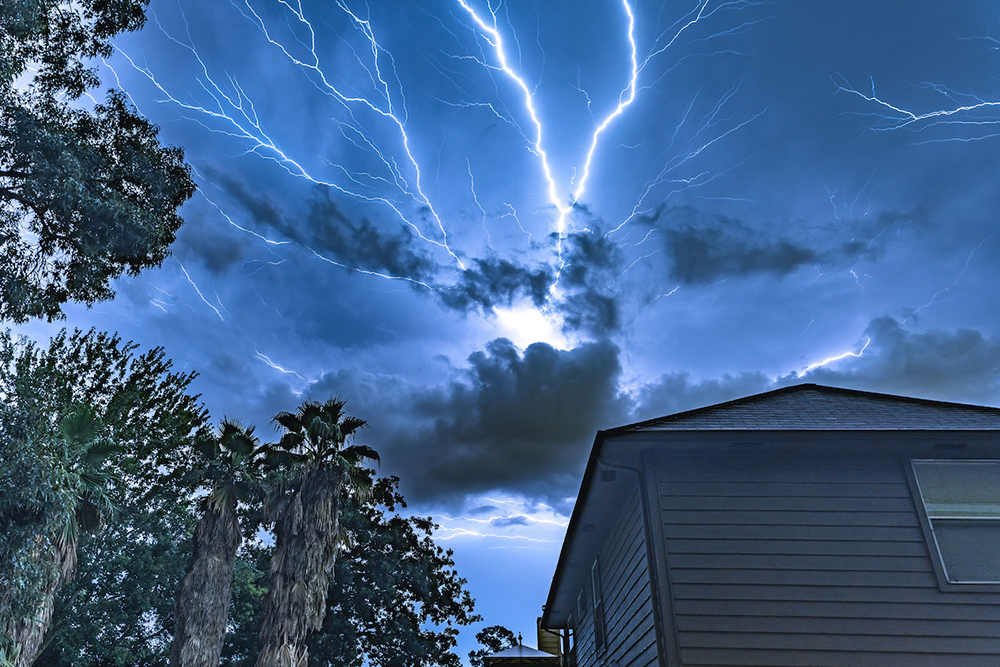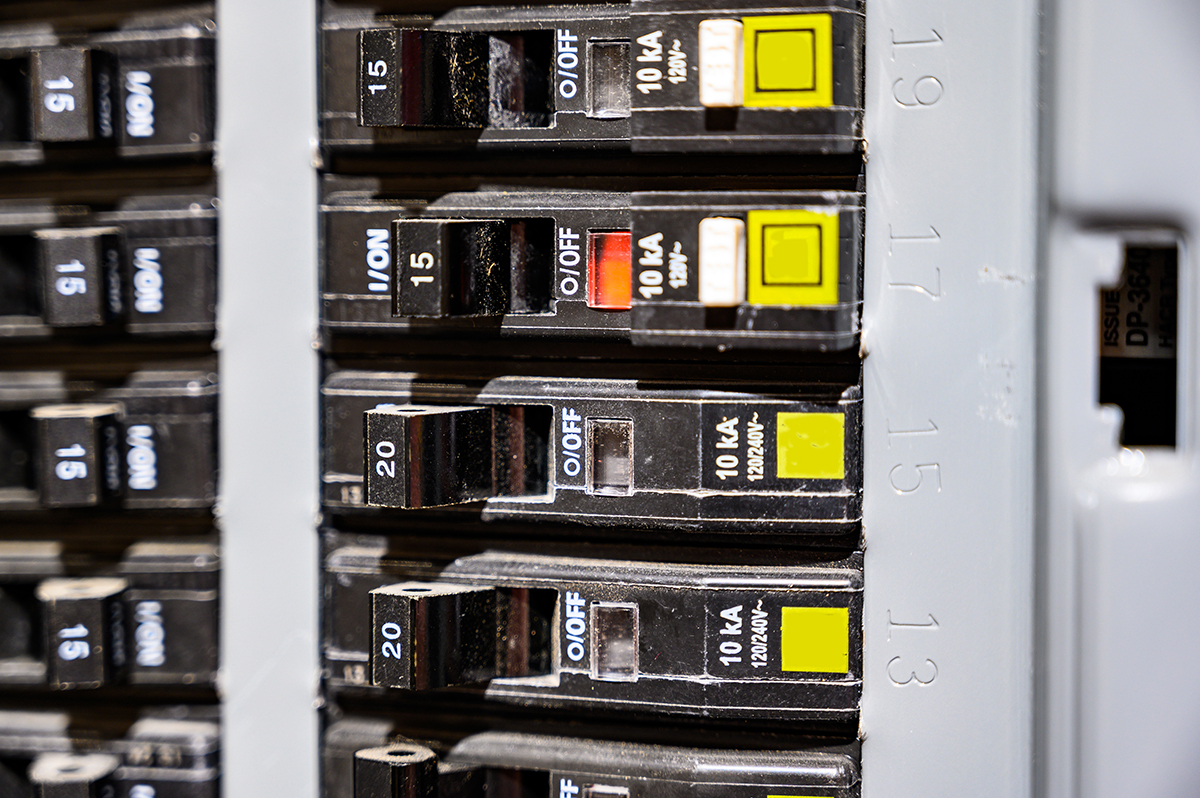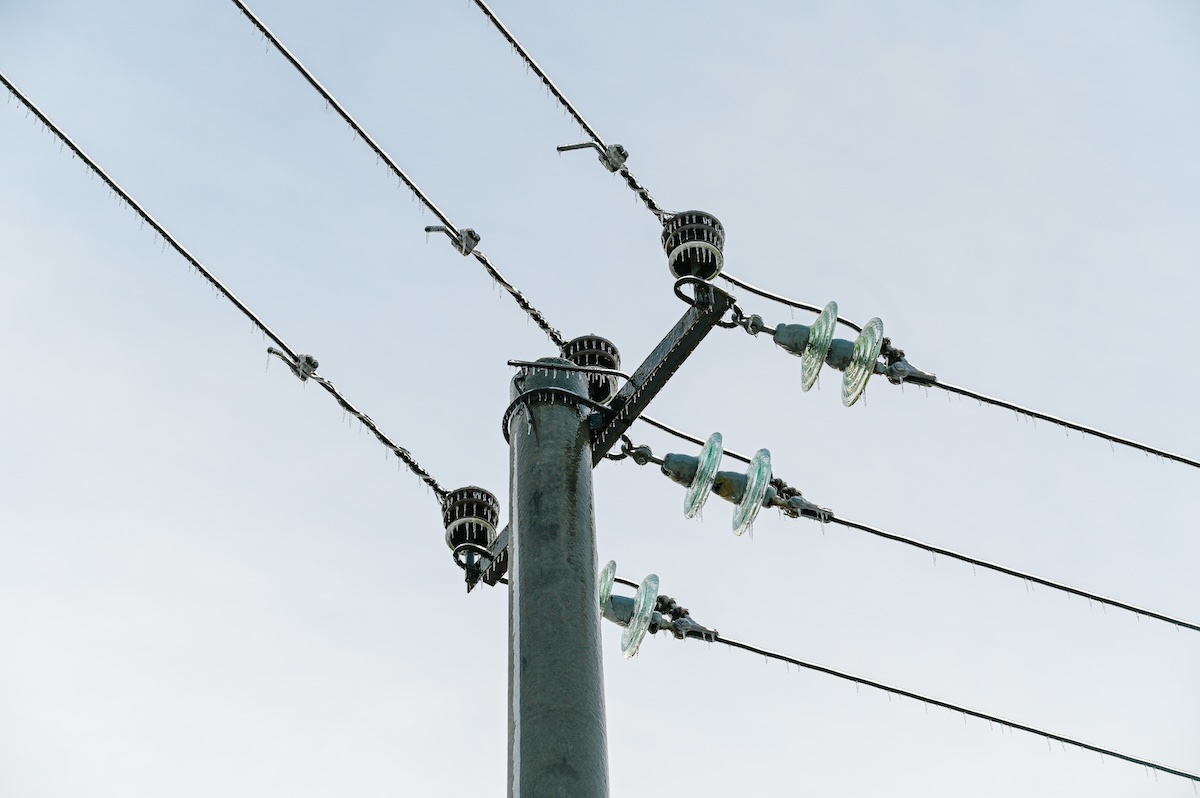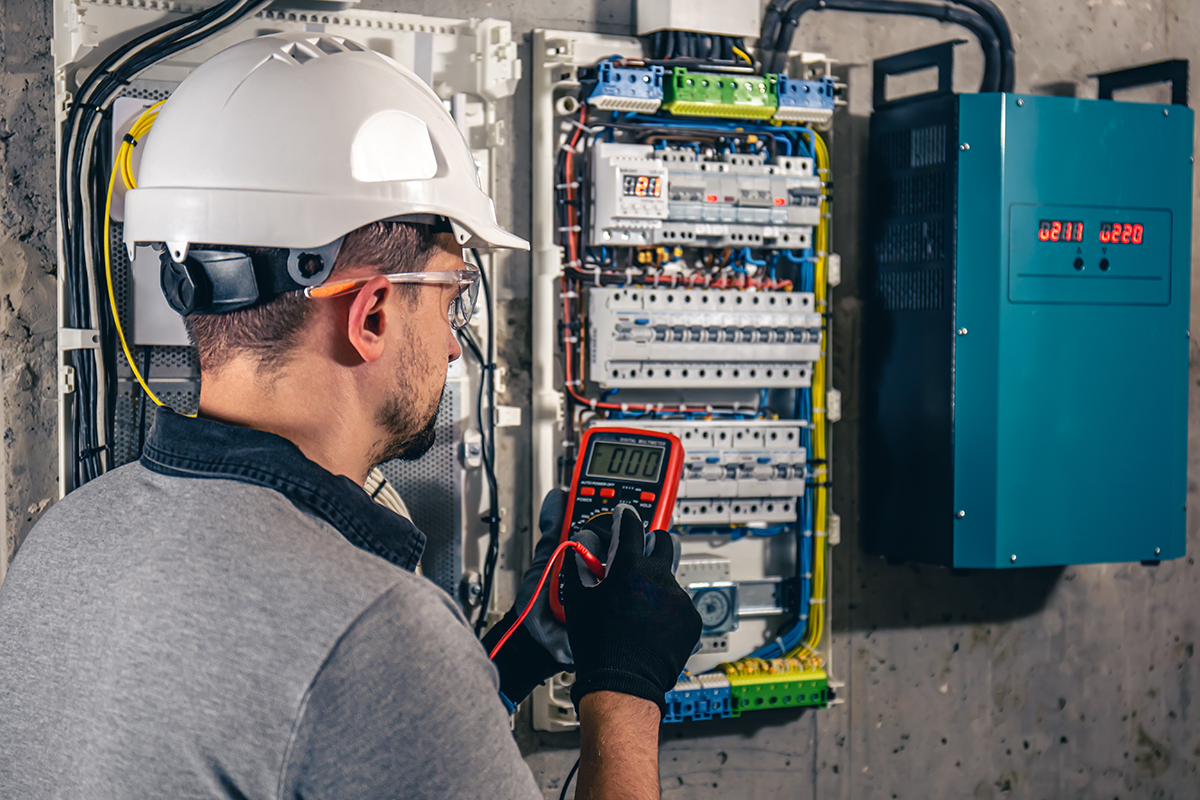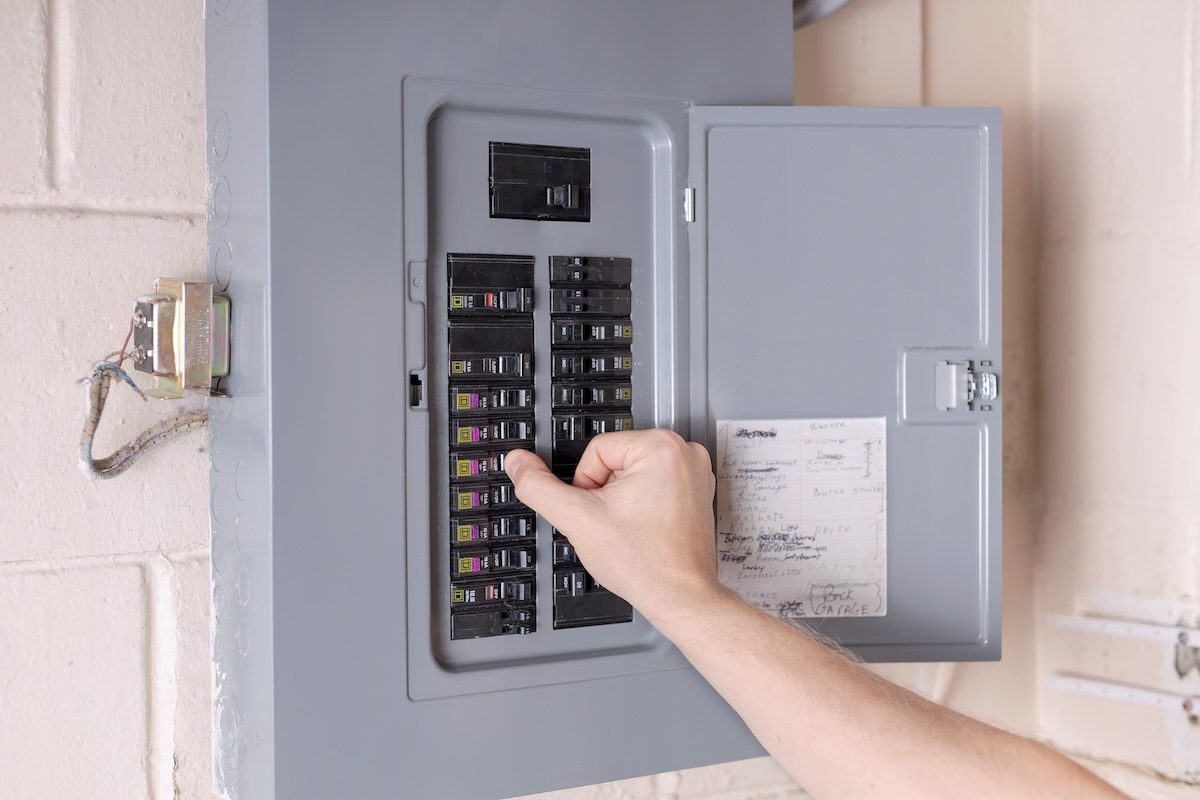Living here in Houston, you quickly learn that a reliable power supply is critical—especially during hurricane season.
Here, power outages can strike without a moment’s notice, disrupting your daily routine, compromising safety, and even threatening the comfort and security of your home.
In these moments, the last thing you want is to be left in the dark, both literally and figuratively. So this article is designed to walk you through many of the things you might want to know about selecting and installing the right standby generator for your home.
We’ll start by clarifying what a standby generator is and how it operates differently from other types of generators. From there, we’ll help you calculate the power requirements of your home so you can choose a generator that meets your needs without overspending on unnecessary capacity.
We’ll also get into the specifics of the whole home standby generator installation process, emphasizing the importance of choosing the right location for your generator to ensure compliance with safety regulations and optimal performance.
Choosing the right electrical professional for the job is critical, and we’ll provide some guidance on how to select an electrician who is skilled and well-acquainted with local codes and requirements.
To wrap up, we’ll discuss routine maintenance and offer safety tips to make sure your generator serves you well for years to come, keeping your home powered through whatever challenges may come its way.
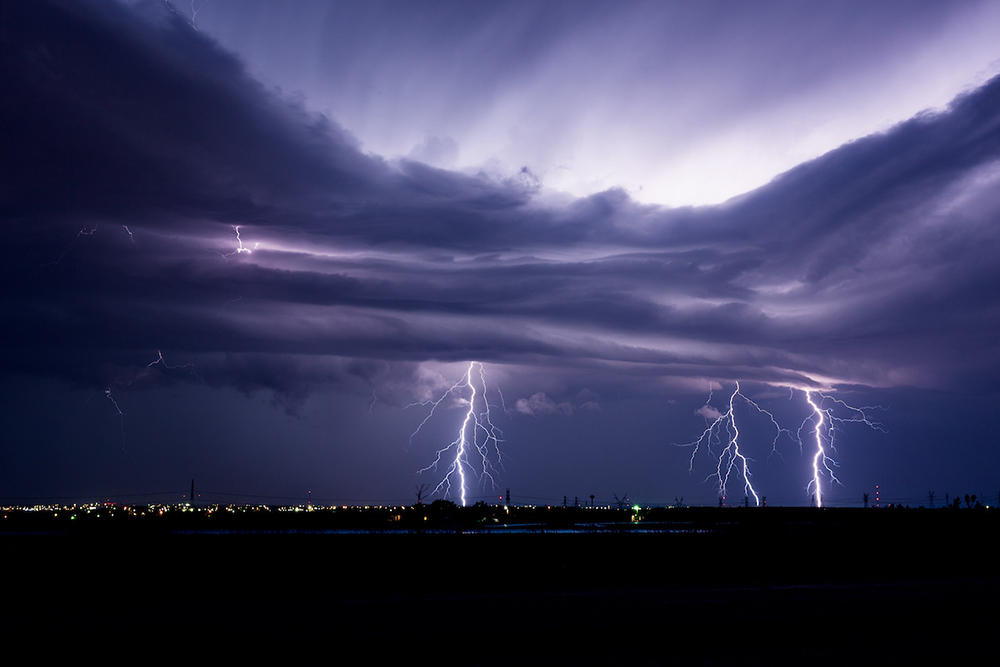
By the end of this guide, you’ll be equipped to make informed decisions, ensuring your home remains a safe, comfortable, and secure one during Greater Houston’s notorious storms and power outages.
What Makes Home Standby Generators Different?
Whole home generators are quite different from the portable generators you might see at a campsite or a tailgate party. They’re permanently installed and automatically kick in when the power goes out, thanks to an automatic transfer switch.
This switch also allows the generator to connect directly to your home’s fuel supply, whether that’s gas, propane, or diesel, providing a seamless transition of power.
The advantages? Well, besides not having to fumble around in the dark looking for candles and flashlights, a standby generator offers safety by keeping critical systems like refrigeration running.
It’s also a convenience factor. (In other words, you won’t have to reset every digital clock in the house when the power returns!) It could potentially even boost your home’s value.
How Standby Generators Operate
Standby generators are integrated directly into your home’s electrical system. Here’s how they work:
When the power goes out, an automatic transfer switch senses the disruption and switches your home’s power source from the grid to the generator. This switch is crucial as it not only provides instant power but also isolates the generator from the grid, ensuring safety and preventing back-feed, which can be dangerous to utility workers and your electronics.
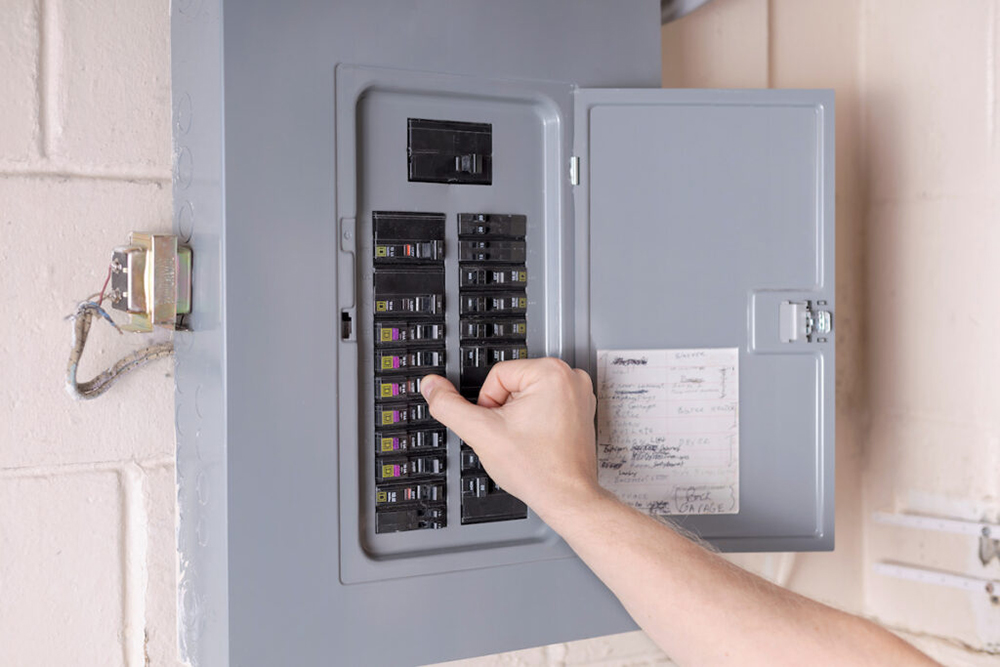
These generators are connected to your home’s existing fuel supply—this can be natural gas, propane, or diesel. This direct connection eliminates the need for manual refueling, a common limitation of portable generators. The use of natural gas, if available, is particularly advantageous because it taps into a continuous supply, meaning as long as the gas line is operational, your generator can keep running indefinitely.
Key Advantages
- Continuous Power Supply: The most obvious benefit is the continuous power supply. There’s no scrambling in the dark for flashlights or candles, no spoiled food in the fridge, and no risk to essential that requires electricity.
- Safety and Security: Beyond just convenience, standby generators enhance your home’s safety. They ensure that security systems remain operational, lighting stays on, and garage doors can be electronically opened, maintaining your home’s security even during widespread outages.
- Convenience and Comfort: Standby generators automate the transition from grid power to backup power. You might not even notice an outage has occurred. Additionally, you won’t need to reset digital clocks, reconfigure electronic settings, or restart digital systems when the power comes back on.
- Protection from Voltage Fluctuations: When power returns after an outage, it can come with surges or dips in voltage that can damage sensitive electronics. A standby generator helps regulate the power your home receives, protecting your appliances and electronics from these potentially costly fluctuations.
- Increased Home Value: Installing a standby generator can also increase your home’s market value. Prospective buyers appreciate the added security and convenience a generator provides, making it an attractive feature in areas prone to power outages.
Determining Your Power Needs
Before your electrician installs your standby generator, you and he or she will need to figure out how much juice you’re going to need. This involves calculating the wattage required to keep your essential appliances and systems running.
Start by listing all the appliances and systems you want to keep running during an outage. For each item, you’ll need to find out its wattage—usually listed on the appliance itself or in the user manual.
Remember, there are two types of wattage: running watts (the continuous watts needed to keep items running) and starting watts (the extra watts needed for a few seconds to start motor-driven products like refrigerators and AC units).
Add up the running watts required by all the appliances you plan to power. Then, identify the one with the highest starting watt requirement and add that to your total. This total gives you a baseline for the minimum wattage your generator should provide.
Now ask yourself: Do you just want the basics covered, or are you looking to power everything as if the outage never happened?
With your wattage needs in hand, you can start looking at generators that meet your requirements. Generators come in various sizes, typically measured in kilowatts (kW). Small generators might offer around 7-10 kW, suitable for basic emergency power, while larger models offering 20-40 kW or more can power a whole house easily.
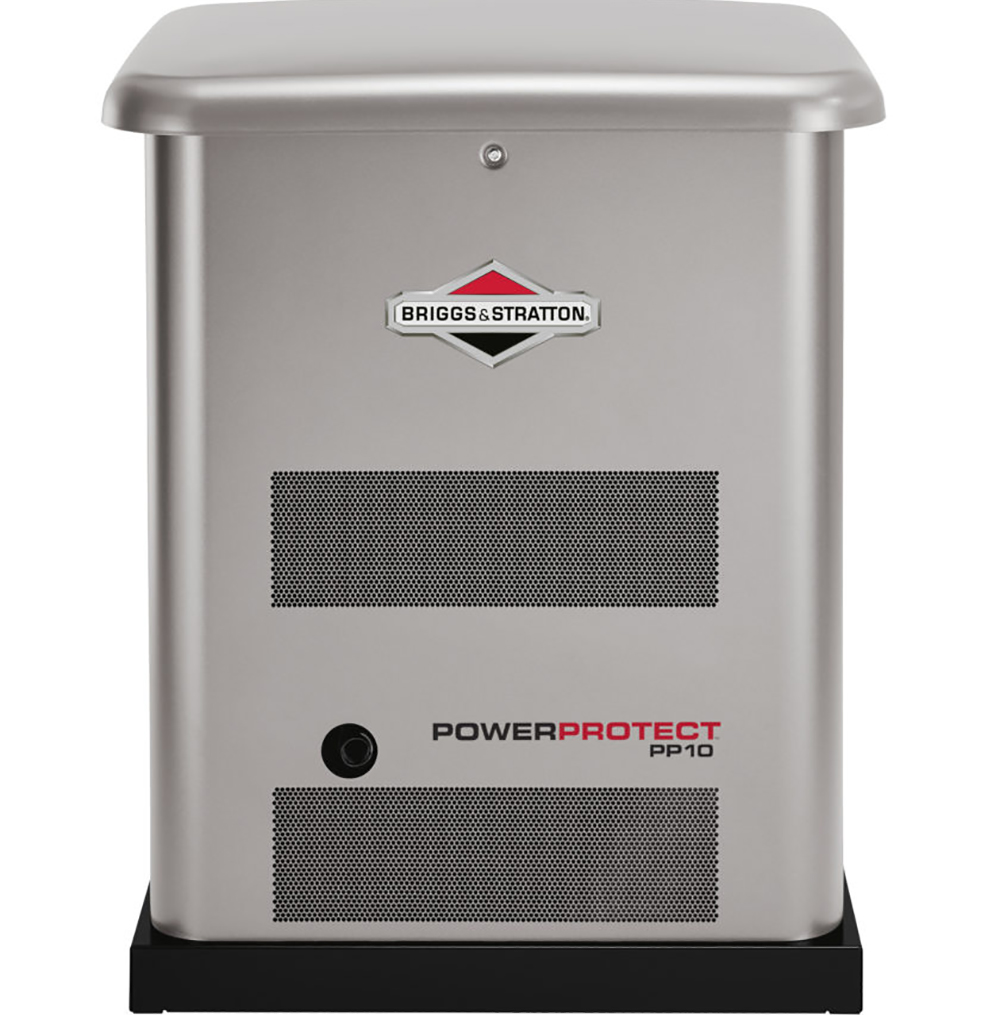
Think about what’s most essential for your house in an outage. If you work from home, powering your office equipment might be necessary. Or, if someone in your home relies on devices, ensuring those are powered is critical.
If minimizing disruption is your goal, you want to opt for a more robust system that can handle either all, or nearly all of your home’s normal electrical load.
Fuel Types
Generators can run on natural gas, propane, or diesel. Each has its pros and cons:
- Natural Gas: Often the most convenient for those who have a direct line because it provides an uninterrupted fuel supply. It’s also cleaner-burning than diesel.
- Propane: Stored in large tanks on your property, it has a longer shelf life than gasoline and can be a good choice if natural gas isn’t available.
- Diesel: Known for reliability and efficiency, diesel generators are sometimes installed for larger, energy-intensive homes but require regular maintenance and fuel storage.
How Whole Home Standby Generators Are Installed
When it comes to installation, location is key. You’ll need a spot that’s safe—away from windows, doors, and ventilation systems to avoid any risk of carbon monoxide entering the home. Also, you might be looking at dealing with some specific regulations here in Houston and the State of Texas, so knowing what permits are needed is essential.
Depending on the home, the process of installing a standby generator can be straightforward—but in all cases, it has to be executed with precision and adherence to safety standards, which is why it’s absolutely critical to have a professional handle the installation.
Here’s how skilled Houston electricians might typically approach the installation:
Choosing the Right Location
The first step is selecting the optimal location for the generator. The generator should be placed away from windows, doors, and ventilation intakes to prevent exhaust gases like carbon monoxide from entering the house.
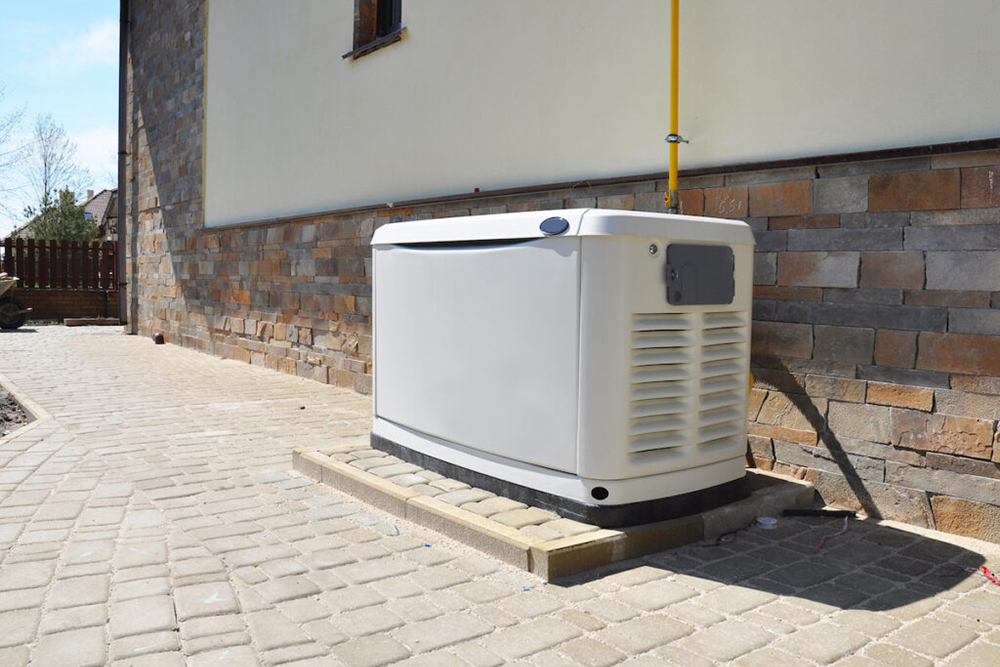
It also needs to be situated on a stable, flat surface that can support the weight of the generator, typically on a concrete pad.
Electricians will also consider the distance from fuel supply lines and the electrical service panel. The closer the generator is to these points, the easier and more cost-effective the installation will be. However, it must also comply with local codes which dictate specific clearances from the home and property lines.
Navigating Permits and Regulations
Houston, TX has specific building codes and regulations that govern the installation of standby generators. A professional electrician will be familiar with these regulations and can handle the necessary permits. This includes ensuring the installation adheres to fire safety standards, electrical codes, and environmental regulations, which might dictate how close the generator can be to the house and boundaries, and the type of fuel it can use.
Typical Installation Steps
- Site Preparation: The electrician will prepare the installation site, which might involve leveling the area and pouring a concrete pad.
- Unpacking and Positioning: Once the site is ready, the generator will be safely moved into position.
- Electrical Connections: The electrician will make all necessary electrical connections between the generator and your home’s electrical panel. This includes installing the transfer switch, which is essential for safely transitioning your home’s power source from the utility to the generator.
- Fuel Connections: The generator will be connected to the fuel source—be it natural gas, propane, or diesel. This step must be done precisely to avoid leaks and ensure efficient operation.
- Testing and Commissioning: After the installation, the electrician will test the generator to make sure it starts and transfers load smoothly. They’ll check all connections and make adjustments as necessary.
- Final Inspection and Cleanup: Once everything is tested, the electrician will ensure that the installation site is clean and that all debris is cleared. They will also guide you through the operation of the generator and provide maintenance tips.
Having a professional electrician manage the installation not only ensures that the generator will work correctly when needed but also keeps you compliant with local safety codes and regulations. This is important for the longevity of the generator and the safety of your home.
Selecting Houston Electricians
Why go local? Local electricians bring a lot of advantages to the table. First, they have a deep understanding of Houston-specific electrical codes and building regulations. This is important for ensuring your generator installation meets all legal requirements—which can vary significantly from one area to another.
A electrician who’s local to Houston would generally also be able to provide quicker response times if you’re also located here. In the event of an issue with your generator, especially during or after a storm, you want someone who can get to you fast. Local pros can be on-site promptly, which is essential for emergency repairs.
Choosing the right electrician is critical not only for a successful installation but also for ensuring the longevity and reliability of your generator system.
Take the time to research and select electrical professionals who meet all these criteria and you’ll set yourself up for a smooth installation and overall generator experience.
Standby Generator Maintenance & Safety
Safety first: Proper operation of your standby generator is critical to avoid dangers like carbon monoxide poisoning.
Regular maintenance extends the life of your generator and prevents those “awkward moments” when it fails during a power cut. Here are a few tips:
- Regular Inspections: Have a professional inspect your generator at least twice a year. They will check the battery condition, fuel system, wiring, and connections, and look for signs of wear and tear or corrosion.
- Oil and Filter Changes: Like any gas-powered engine, your generator may need regular oil changes to keep running smoothly. The frequency of oil changes depends on how much use the generator sees. Regularly changing air and fuel filters may also be important to maintain efficient operation.
- Test Runs: It’s a good practice to run your generator periodically, even if there’s no power outage. This not only ensures that it’s ready to go when needed but also helps keep the engine parts lubricated and identifies any issues that need attention.
- Keep It Clean: Make sure the generator and its surroundings are kept clean and free from debris. This prevents overheating and promotes better airflow and cooling.
Safety can’t be overstated when it comes to operating a standby generator. So here are a few basic safety guidelines to follow, but remember, these aren’t exhaustive. Always consult your generator’s user manual, qualified electrical professionals, and local safety regulations for more specific safety practices after installing your generator model.
In addition to those resources, you might also consider consulting the Electrical Safety Foundation International (ESFI), the National Fire Protection Association (NFPA), or the Consumer Product Safety Commission (CPSC).
- Carbon Monoxide Detection: Always install carbon monoxide detectors in your home, especially near sleeping areas. This is critical because like motor vehicles, generators that run on gas/oil-based fuels produce carbon monoxide, which is a colorless, odorless gas that can be lethal.
- Proper Ventilation: Ensure that your generator is installed in a well-ventilated area to prevent any buildup of exhaust gases.
- Electrical Safety: Never try to connect a generator directly to your home’s electrical system without a transfer switch. This prevents back-feed, which can be dangerous to utility workers and can damage your electrical system.
- Fuel Safety: Store generator fuel in properly labeled, non-glass safety containers. Use the type of fuel recommended by the manufacturer, and never refill the generator while it is running or hot.
Final Thoughts

Hurricane warning sign on a Houston freeway.
For many Houston residents, a whole home standby generator ends up being a practical addition to their household. Given the region’s susceptibility to power outages, especially during hurricane season, having a generator means a whole lot more than keeping the lights on. It helps maintain essential home functions like air conditioning during the summer heat, keeps refrigerators running to preserve food, and ensures that your home or building’s security systems continue to operate.
Rather than rushing into a decision, take the time to evaluate models, understand the scope of installation, and consider any ongoing maintenance steps that may be required for your model.
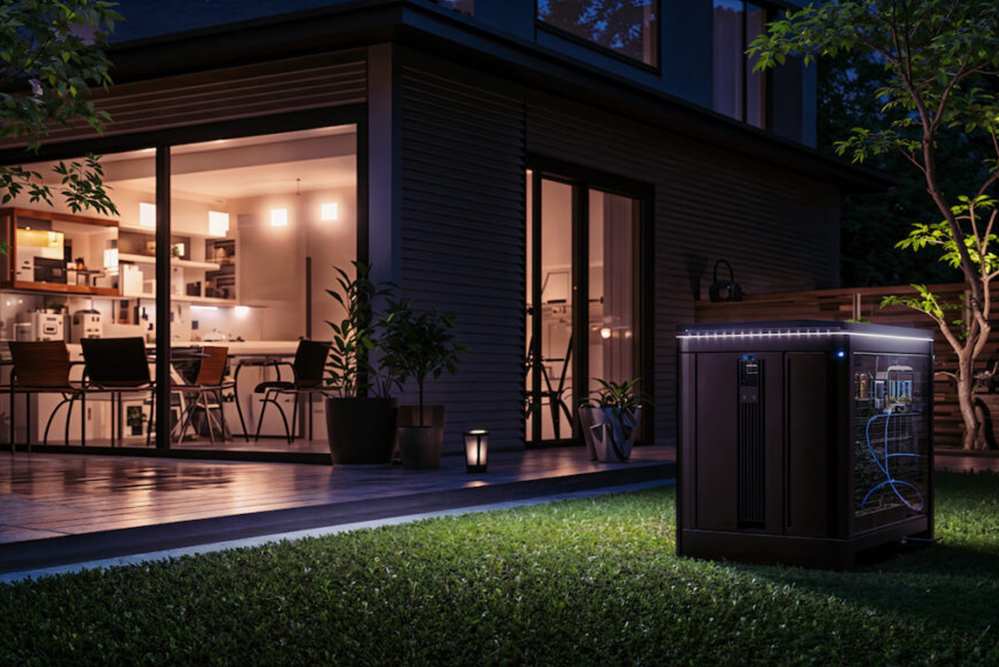
As you consider integrating a standby generator into your home, communicating with a local Houston electrician can be a good first step. A professional consultation can provide you with tailored advice that fits your specific home and energy needs.
Need a Standby Generator? Contact the Top Electricians Houston Has to Offer
Ready to take the next step? Consider reaching out to Houston’s own Brotherlylove Electric and start with a consultation.
We’ll help you come up with a generator solution for you that fits your needs and budget. Give us a call at (346) 777-3370 or click here to contact us/schedule an appointment online.

